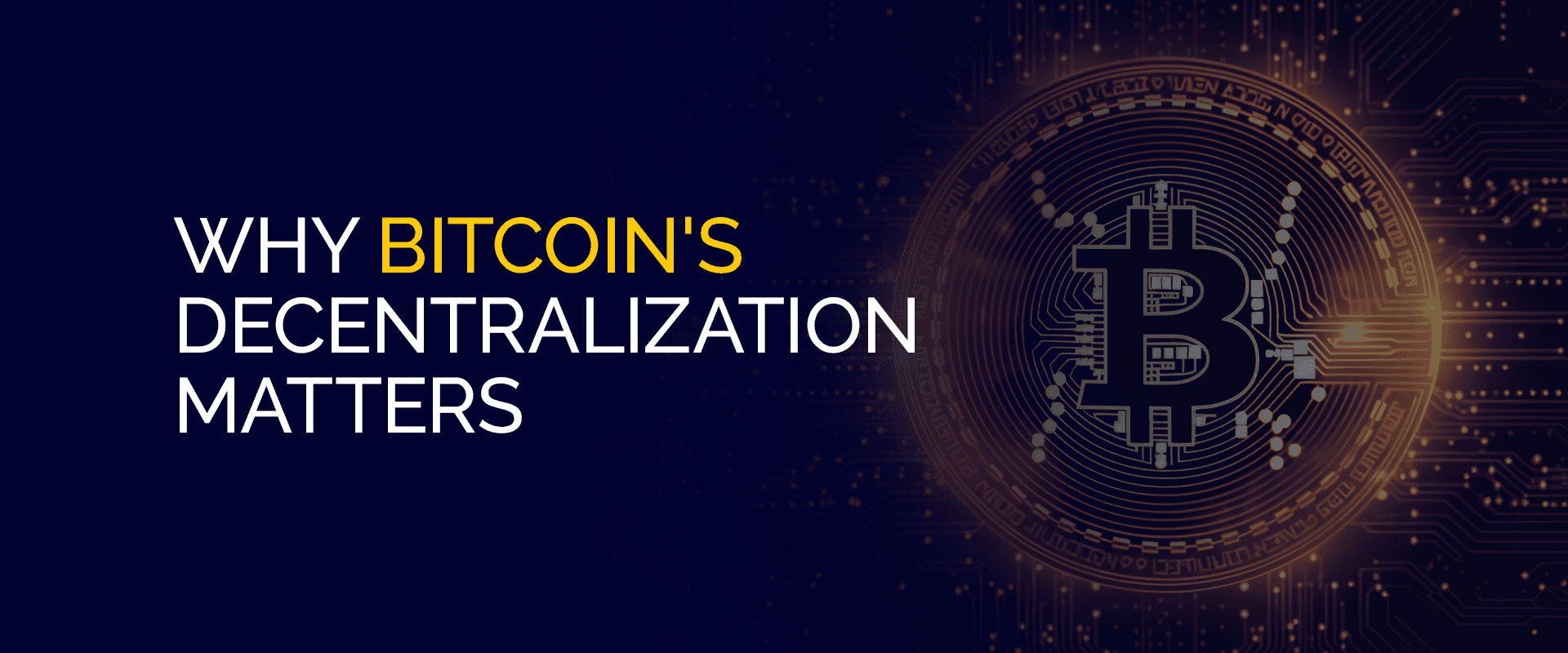

Get 93% OFF on Lifetime
Exclusive Deal
Don’t miss out this deal, it comes with Password Manager FREE of cost.
Get 93% off on FastestVPN and avail PassHulk Password Manager FREE
Get This Deal Now!By Christine Margret No Comments 4 minutes
Bitcoin’s decentralization is among the primary reasons many people like this cryptocurrency. Here’s why it matters now more than ever.

Bitcoin’s decentralization is vital to its success. Unlike fiat money or conventional financial systems, Bitcoin’s control is not under a single entity. Several computers or nodes, known as miners, validate Bitcoin transactions before their addition to Bitcoin’s blockchain. Once they add transaction details to the Bitcoin’s blockchain, no entity can tamper with them. This vital mechanism makes Bitcoin almost impossible to manipulate.
Bitcoin’s decentralization means its blockchain contains data spread out in several computers or network nodes running its blockchain software at multiple locations. That means the Bitcoin network lacks a central regulatory authority or counterparties, which many consider beneficial for cryptocurrency users. Due to decentralization, Bitcoin can run without a central authority like a central bank or government overseeing its operations. Thus, central governments, banks, or other centralized entities can’t manipulate Bitcoin’s value. Instead, people decide on Bitcoin’s price depending on their willingness to buy or own it.
While some consider this vital since it prevents interferences from central authorities like central banks and governments, others see it as a drawback. Every institution needs a structure to function smoothly. Whether it’s a government or a central bank, this structure determines its operations. In the case of money, this system determines its production and circulation.
For Bitcoin, a software consensus mechanism decides on the transaction rules. Satoshi Nakamoto designed Bitcoin with a structure comprising nodes that decide its governance. This system also adjudicates disputes that arise on the network. However, the lack of a universal or centralized authority makes adjudicating disputes or changing its governing rules challenging. Consequently, some people have questioned the essence of Bitcoin’s decentralization. If you want to invest in bitcoins then you can visit online trading platforms like Immediate Bitwave
Satoshi Nakamoto envisioned a payment system operating without intermediaries when creating Bitcoin. That’s because a payment system with a trusted third party responsible for making decisions has inherent problems. For instance, the third party’s goals can diverge from the system user’s. An example is when a third party, such as the government, inflates fiat currency to increase the amount of money in circulation. Unfortunately, this affects the citizens of a country in several negative ways.
Also, centralized currencies involve governments and banks that influence how people spend their funds. For instance, you may need permission from your bank to transfer money. Also, you will incur high charges and endure long waiting times when transacting with fiat money.
Bitcoin is censorship-resistant and permissionless. Therefore, anybody can join the Bitcoin network and transact with this cryptocurrency. Bitcoin provides an immutable ledger that facilitates open and non-discriminatory participation. Thus, decentralization eliminates the inequalities in conventional banking systems where only those with access to these systems can spend fiat money or access their services.
Today, traditional banks experience numerous challenges, including fraud and cyber-attacks. Criminals can also liaise with bank employees to steal money. Bitcoin runs on blockchain technology, which makes transactions irreversible and possible to track. Moreover, Bitcoin users require private keys to transact. So, a person can steal or transfer your money to another crypto wallet only if they have your private key. This makes Bitcoin’s decentralization more critical now than ever due to the increasing cases of cyber-attacks and fraud.
Bitcoin’s decentralization democratizes payments. It’s among the primary reasons many people embrace Bitcoin. Also, it enhances financial inclusion, especially in places with limited access to conventional banks. Moreover, eliminating intermediaries or replacing them with widely distributed nodes improves efficiency. It reduces the time users wait to receive payments or complete transactions. Additionally, it makes Bitcoin transactions more affordable.
Take Control of Your Privacy Today! Unblock websites, access streaming platforms, and bypass ISP monitoring.
Get FastestVPN
© Copyright 2024 Fastest VPN - All Rights Reserved.


Don’t miss out this deal, it comes with Password Manager FREE of cost.
This website uses cookies so that we can provide you with the best user experience possible. Cookie information is stored in your browser and performs functions such as recognising you when you return to our website and helping our team to understand which sections of the website you find most interesting and useful.
Strictly Necessary Cookie should be enabled at all times so that we can save your preferences for cookie settings.
If you disable this cookie, we will not be able to save your preferences. This means that every time you visit this website you will need to enable or disable cookies again.


